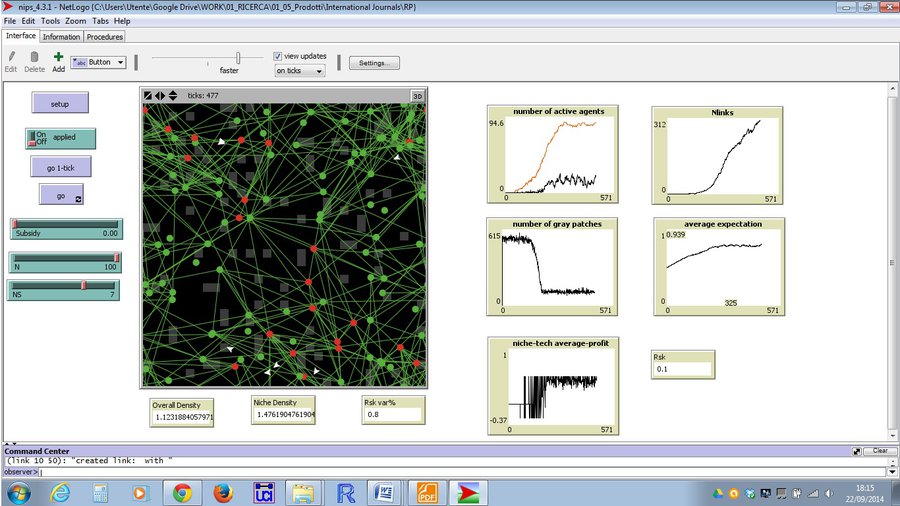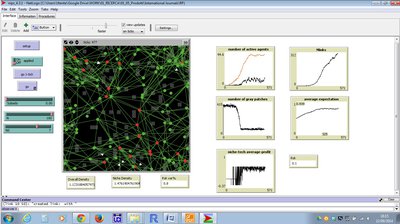Emerging innovation niches model 1.0.0
The creation of an innovation niche depends on the interaction of three mechanisms involving: converging expectations, networking among the innovation actors, and learning about the novelty through efficient knowledge creation and diffusion. Such mechanisms define the key characteristics of a network of firms (i.e. the innovation niche), and the interaction among them guides the development and diffusion of a new technology. In this paper, we propose an agent-based model to investigate the dynamics characterising such interactions and the role that policy intervention can have in governing the niche development process. Specifically, we consider and assess the impact of two policy actions: (1) increasing actors’ expectations towards the new technology by means of information spreading, and (2) providing subsidies aimed at stimulating technological switch. Our results confirm the importance of policy intervention and show the dominance of information spreading activities over subsidies. The former policy action, in fact, preserves a broad consensus around the new technology, a fact which turned out to be fundamental in order to promote efficient knowledge diffusion and the effective use of individual and network resources.

Release Notes
Version 1
